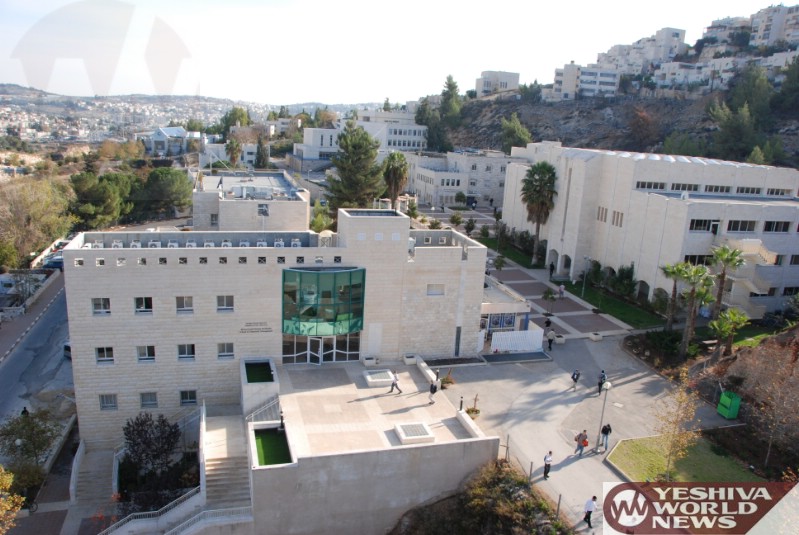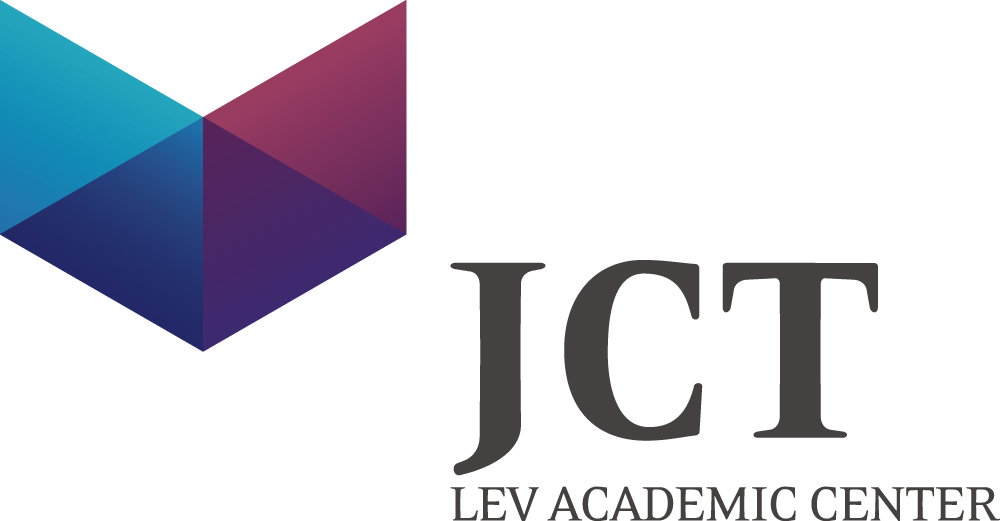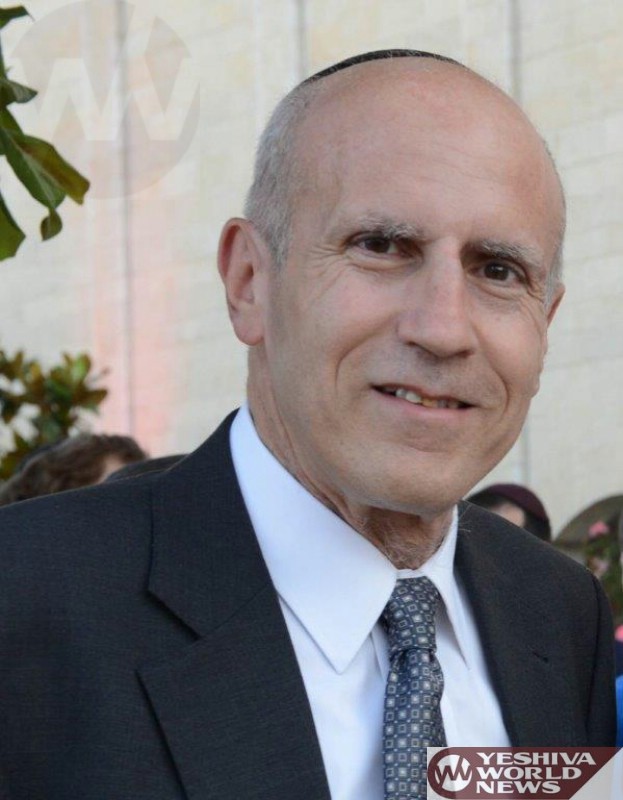(By Rabbi Yair Hoffman)
YH: Jerusalem College of Technology is the main academic institution in Israel where Chareidim are studying high tech. What areas do they tend to gravitate to most?
SH: Largely, they gravitate toward computer science. This is a full college degree at the highest level. It is not just a certificate program or a six month training degree. Their knowledge is rock-solid.
YH: What area of the work force generally hires these Chareidim?
SH: We have hundreds of graduates in Intel, Cisco – especially among the Chareidi students.
YH: What is your placement rate?
SH: We put much effort in placing our graduates. It is at 90 percent.
YH: How many JCT Chareidi graduates are out there in the work force?
SH: There are quite a few hundred – even though, relatively speaking, we just started. In Israel in general, 58 percent of college graduates are women. When it comes to JCT 53 percent – 1 out of 5 women in Israel who are studying computers are at JCT. If this continues, a huge percentage of the computer employees in Israel’s Hi-tech sector will be chareidi women.
YH: What percentage of first year students finish the program?
SH: You have to realize that the overwhelming majority of Chareidi students come to us with zero background. We have a mechina or prep year where they learn English, math and physics at college level. After that year we have almost a 50 percent drop off rate. Not everyone gets into the mechina year. It is, actually, hard to understand how 50 percent actually make it.
YH: What would you say are the main factors that create stick-to- it-ism in the Chareidi population that do attend JCT?
SH: An excellent question. I would say the motivation to provide for their families and be above the poverty line. Most do not have their parental support. The finances are difficult. It is the ability to take four or five years off that they have to have and make it. We are not allowed to speak to the Chareidim until they are 26 years old. In Israel, when you are 18 you can either go to Yeshiva or to the army. The only time that you can leave yeshiva and go to university is when you are 26 years old. That is when they first have a chance to pursue this type of education. By that time, many are married and have children.
YH: Is there no evening college with Yeshiva in the morning and afternoon like they have in America? Touro college for example has college two nights a week for men and for women. Most of them attend Yeshiva in the daytime.
SH: That doesn’t work in Israel. The army exemption does not allow college two nights a week at all. It is fundamentally different than the United States. Otherwise, it would create a major crisis in this country.
YH: Do your graduates have any push back in getting jobs because they are chareidi?
SH: It is not pushback that they get, it is just that there is some disconnect. Take Cisco, for example. The interviewer wants to hear how they will make Cisco the best company in the world in the short twenty minute interview process. The Chareidi JCT graduate might mumble in response. Their values are modesty and humility – something that is kind of opposite of what the HR person wants to hear. We have gotten a lot of feedback from the HR companies. There are also cultural differences too – which makes for some other forms of disconnect.
YH: Do you have a training seminar for interviews?
SH: Yes we do, in fact.
YH: Do you have some sort of a mock interview?
SH: Yes, that too.
YH: Would you bring, say, a non-b’tznius dressed HR person for the mock interview? Although it would be a questionable thing to do, it may help them learn how to conduct themselves on an interview. I imagine your chareidi students would be very upset if you did, however.
SH: Yes, they absolutely would. We explain that there will be a non-tznius person interviewing, but no – we would not bring in a non-tznius person for a mock interview.
YH: What type of Chareidim attend your program? Is it diverse?
SH: We have Eidah Chareidis people we have Toldos Aharon people. It is not just Chareidi lite.
YH: I understand that there is a court case against you for discriminating against women on account of your separate campuses and that you don’t have women lecturers. Where is that holding?
SH: The heads of our departments are women as are some members of our board. The main party to the lawsuit is the council of higher education.
YH: Your student body would not consider behind the mechitzah type of instruction, right?
SH: Some would and some would not..
YH: What about the cafeteria? What hechsher?
SH: All meat is badatz meat and the hechsher are under 13 of our Ramim. It is very Chareidi friendly and very tznius. Don’t forget this is their first venture outside of the Chareidi world – we are very Chareidi friendly.
YH: So the program involves learning in the morning and studying computers in the afternoon. In the Chareidi program do they go to the morning learning too?
SH: We have a program that if you have 3 full years of learning – then you are exempt from the morning learning requirement. They have a difficult schedule. They learn in the morning, study at us in the afternoons and work at night to have a job.
YH: What kind of jobs do most of them have?
SH: I just gave a ride to a student, with pays, a long bekisha – he delivers pizza. Another washes dishes. It is very sad. Some have basic skills – so they can do some programming. If these students could have some sort of stipend – I am sure that the dropout rate would significantly lessen.
YH: Are there any Knesset members that have a strong interest in your program?
SH: On the record or off the record?
YH: Both.
SH: Off the record. – almost none of the Chareidi Knesset members visit the campus, but many have kids that have studied here. On the record – everyone in the non-chareidi section understands the importance of having the chareidim join the workforce. Israel has a shortage of manpower on the high tech side. If Israel wants to be a world player – they need this sector.
YH: And how are Chareidim in general doing in this sector?
SH: 17000 shekel a month is considered a decent salary in Israel. But only 0.7 percent of those above 17,000 shekel a month in the hi-tech sector are Chareidim. That 0.7 percent are mostly our graduates. We want to change that. In the Chareidi world, this whole revolution or evolution is happening fairly rapidly. All eyes are looking at them. There are, essentially, two criterion for success in the chareidi world: 1] Will they remain frum at the same level as when they came in? and 2] Will they get good jobs?
YH: Is there any form of affirmative action, so to speak, in Israel for Chareidim?
SH: The government has it for its own workers – other firms are very pro diversity – so, while there is no affirmative action so to speak, the diversity programs enable things. The minister of Labor did come out with all sorts of incentives two years ago – but they were not so effective. They also came out with all sorts of benefits – we weren’t eligible for any of it – even though we were the main people doing it. Bennett had also put aside 500 million shekel for chareidi employment. Thus far, only a very small percentage of it was used – mostly, in my opinion, because they didn’t know where it could or should go.
YH: Have you ever considered giving scholarships to be administered by certain leaders in the Chareidi world?
SH: There are two main foundations that pay the tuitions and give stipends to the Chareidi students. One is Kemach, the other is Yedidut Toronto. These are the two main organizations that are making this happen. There is also some government support. If they didn’t exist this never would have happened.
YH: What are your hopes for the future?
SH: We see first-hand some of the real poverty in the Chareidi world that is heart breaking. It has caused all sorts of problems including shalom bayis. I think it would be a proper thing for the Chareidi world where they can bring a respectable salary home. It would take away a lot of the pressures that they have. This is our dream.














